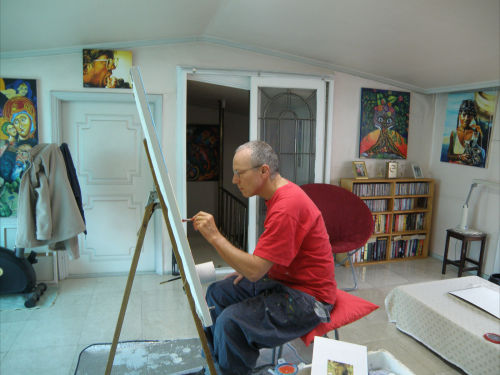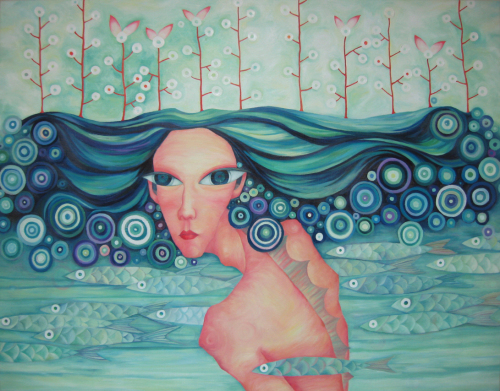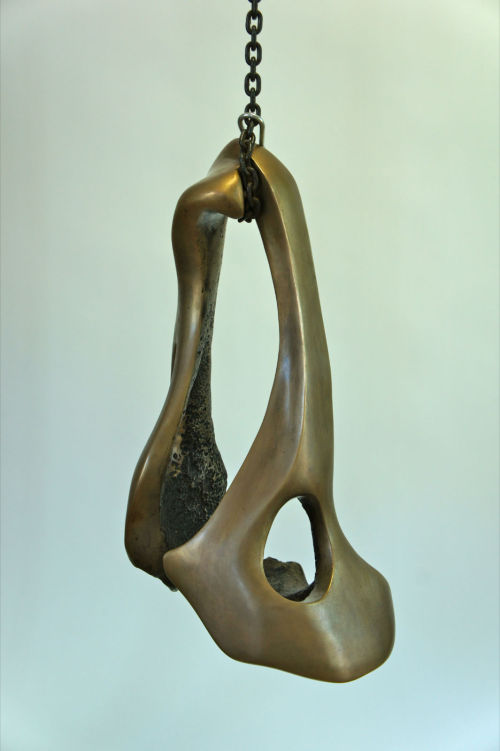International Artists Community exhibition explores icons of Korea, West
This month sees Seoul-based expat and Korean collective, the International Artists Community, head to Ulsan for their first exhibition outside Seoul.
Titled “Where are all the Heroes?” the exhibition, opening May 8, will look into the role models and ideals of Korean society and how that resonates with foreigners living here.
“We’re very excited about it because it’s our first opportunity to get out of Seoul to a place where there’s maybe not so much exposure to Western artists,” said founder Richard Beaumont.
When Beaumont first spoke to The Korea Herald after their first exhibition “Cultures Connect,” the organization was just up and running. More than a year later, the IAC is thriving, with almost 60 members from 17 countries.
 |
IAC founder Richard Beaumont at work in his studio. (IAC) |
“The group is developing, it’s getting bigger. It’s getting to the point where we probably transform into something different I think in the not too distant future,” said Beaumont, who hopes to make more connections with Asian artists.
The IAC already has connections in the United States and France but hopes to expand its reach farther.
“That’s something I’d like to see in the future, a more international connection between different groups, bringing in artists, maybe going overseas and having overseas exhibitions in the region,” he said. “But that’s a long-term dimension.”
In the meantime, the community is content expanding here and diversifying the types of art it offers.
“We’re constantly trying to extend the range and types of artists,” said Beaumont, explaining that the IAC now includes not only two-dimensional artists and photographers but also installation artists, a sculptor and a furniture-maker and leather worker. Even poets have asked to join.
 |
Oil on canvas painting by IAC member Lee Sun-hee titled “Goddess of the Sea.” |
 |
A sculpture by IAC member Jason Mehl titled “Blaze of Autumn.” |
For the past six months, performance art has also become a trademark of their exhibition-openers.
Embracing as much diversity as possible is clearly important for the group, which hopes to transcend boundaries of race and seek a deeper appreciation of Korean culture.
“It’s quite a difficult culture to really get deeply into. Superficially, no problem, but deeply into it … language is one part, but there are very, very deep cultural differences between Korean society and Western society,” observed Beaumont.
Despite the IAC’s success since its November 2009 formation, he is careful not to get too complacent: “I’ve seen a number of groups in Korea and they get to a certain point and then they stumble, so we need to get a better organizational structure set up. We maybe need to get some official recognition, some sort of registration process which would make us maybe more able to apply for grants and support.”
As the IAC has become more well-recognized and accepted among the Korean art community, galleries now invite them to exhibit. Keen to always exercise professionalism, Beaumont ensures that those whose talents are most suited to the theme are chosen.
Wilfred Lee will be one of the 12 artists exhibiting in the Ulsan exhibition. Although he was slow to get into the art scene, he found joining the IAC in mid-2010 offered a great route in.
Now teaching an art class at Myeong-dong gallery, he said of the IAC: “You get to do something in Korea that not many people have the opportunity to do and physically share with other people.”
With a background in animation, Lee’s work for this exhibition will be inspired by superheroes in the West, right from the first one ― Superman ― created in 1938.
Adam Lofbomm, curator of Laughing Tree Gallery in Haebangchon, will also be exhibiting. A photographer, he is working on a triptych that describes urban life and the human body.
“For me, my heroes are these people, prim city dwellers who are creating culture, art, community and reimagining what it means to be human,” he says.
For him, the IAC has been an inspiration: “I was encouraged in terms of what they were doing, in terms of creating not just an expat art group, because I’d seen that happen before, but to create a real cultural bridge between the Korean scene and the expat scene and try and bring the communities together.”
Jang Oui-loung, Beaumont’s wife, has been involved with the group from the beginning, particularly in introducing the IAC to Korean artists. Although she says there are some differences between the way the Korean and foreign artists work, she said “mostly all artists have a common bond.”
As a mixed-media artist, she will be using materials including fabrics, plastics and recycled products to play with the meaning of heroes in a conceptual way.
Although there is a constant stream of around two or three new members per month, the IAC is always open to new members, and you don’t have to be established either, said Beaumont.
He also hopes the group can continue to make further connections with other art organizations here ― Korean and foreign.
“Through art we can break down a lot of the barriers that exist ― particularly in a society like Korea that has been closed for many centuries and has only relatively recently opened itself to a lot of input from other countries,” said Beaumont.
“Where are all the Heroes?” will run through May 28 at Gallery Dot. There will be an opening event featuring three performance artists ― Anthony Ragucci, Hong Oh Bong and Tiger & Bear ― at 3:30 p.m. on May 14. For more information on the exhibition and work of the IAC visit http://www.koreaiac.com/.
By Hannah Stuart-Leach (
hannahsl@heraldcorp.com)










![[Today’s K-pop] Blackpink’s Jennie, Lisa invited to Coachella as solo acts](http://res.heraldm.com/phpwas/restmb_idxmake.php?idx=644&simg=/content/image/2024/11/21/20241121050099_0.jpg)